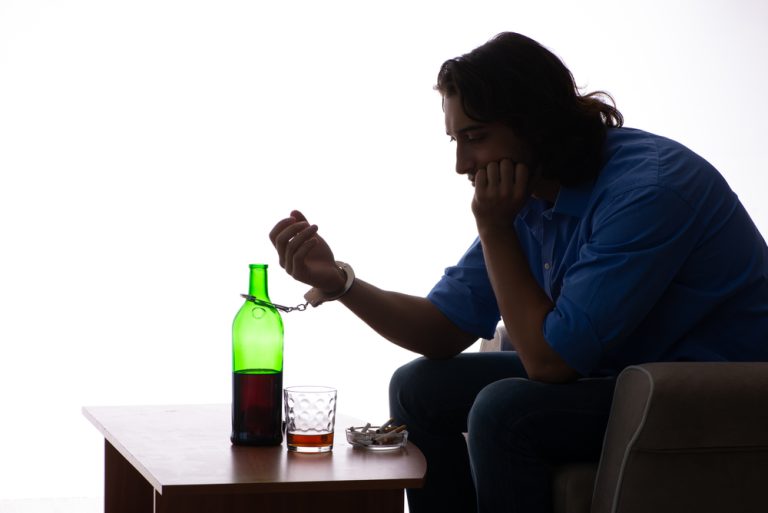You’re spending less time on activities that used to be important to you (hanging out with family and friends, going to the gym, pursuing your hobbies) because of your alcohol use. You often drink more alcohol than you wanted to, for longer than you intended, or despite telling yourself you drug addiction wouldn’t. Continuing to drink even though your alcohol use is causing problems in your relationships. Getting drunk with your buddies, for example, even though you know your wife will be very upset, or fighting with your family because they dislike how you act when you drink. If your drinking is causing problems in your life, then you have a drinking problem. Taking care of your emotional and mental health can help you better help them.

Ways to Increase Your Chances of Recovery From Alcohol Addiction
- Behavioral treatments—also known as alcohol counseling, or talk therapy, and provided by licensed therapists—are aimed at changing drinking behavior.
- If you feel that you sometimes drink too much alcohol, or your drinking is causing problems, or if your family is concerned about your drinking, talk with your health care provider.
- The goal is to change the thought processes that lead to alcohol misuse and to develop the skills necessary to cope with everyday situations that might trigger alcohol misuse.
- For example, you might not have a drink until after 3 p.m.
When your adult child has a drinking problem, there’s a fine line between being a loving parent and enabling the addiction to continue. Blaming others, whether it’s a parent or a spouse, is a classic sign of an addiction. Take a deep breath and remind yourself that this behavior is a sign of their illness—not a reflection of your parenting. Do not escalate the situation with further name-calling, judgment, or blame. Stress that they have an illness, you care about their social alcoholism future, and you want to see them get the help they need.
Millions of readers rely on HelpGuide.org for free, evidence-based resources to understand and navigate mental health challenges. Please donate today to help us save, support, and change lives. Telling yourself you can quit makes you feel in control, despite all evidence to the contrary and no matter the damage it’s causing. If you find yourself rationalizing your drinking habits, lying about them, or refusing to discuss the subject, take a moment to consider why you’re so defensive. If you truly believe that you don’t have a problem, you shouldn’t have a reason to cover up your drinking or make excuses.
Stage #1: Occasional abuse and binge drinking
- Knowing the signs and symptoms of each stage can aid you in seeking help before your problem turns into dependence and addiction.
- If you would like to learn more, we invite you to contact us today.
- Alcoholics may drink alone, experience health complications, and have difficulties in their personal or professional lives due to their drinking habits.
- At certain stages of recovery, individuals who have an AUD may still hope that they can one day drink normally.
- They’re able to successfully manage tasks around their work, school, family, and finances, he says.
- Are you wondering whether your drinking is on the high side of normal or if it’s crossed the line into a problem?
For example, you might not have a drink until after 3 p.m. Rather, you go out to happy hour with friends or alone to be among others at the bar. Remember that there’s no time limit on reaching out for help. Recovery is lifelong, and a relapse can happen at any time, even after years of not drinking.
A Family History of Alcoholism
Teens today experiment with alcohol earlier and more often than ever before. They’re more likely to binge drink and more vulnerable to developing an alcohol use disorder than adults. This may be because the pleasure center of a teen’s brain matures before their capacity to make sound decisions. Ideally, health care providers will one day be able to identify which AUD treatment is most effective for each person.
Overdose Awareness Day
A parent who is drinking heavily may not be able to ensure that a child’s basic needs are met. In more extreme cases, your grandchildren may be suffering emotional and/or physical abuse while their parents are under the influence. When your child has an untreated addiction, the best thing you can do is to show them the consequences of their actions while continuing to urge them to seek treatment. Often, adult children will attempt to deflect responsibility for their actions by blaming their parents for their current situation.

Listening to others with the same challenges can serve as a tremendous https://ecosoberhouse.com/ source of comfort and support. Experiencing repeated legal problems on account of your drinking. For example, getting arrested for driving under the influence or for drunk and disorderly conduct. Repeatedly neglecting your responsibilities at home, work, or school because of your drinking.
Medications can also deter drinking during times when individuals may be at greater risk for a return to drinking (e.g., divorce, death of a family member). Not all alcohol abusers become full-blown alcoholics, but it is a big risk factor. Sometimes alcoholism develops suddenly in response to a stressful change, such as a breakup, retirement, or another loss.
Medical Professionals
For those struggling with problem drinking or alcoholism, various treatment options are available, including therapy, rehab programs, and support from friends and family. While there is no such thing as a “social alcoholic,” some individuals may use social drinking as a disguise for their drinking problem. They may follow a set drinking schedule, only drinking outside their homes or with friends, and they may deny that their drinking is out of control. Alcoholism, or alcohol use disorder, is a true health condition characterised by a physical dependence on alcohol and a loss of control over alcohol intake.

Alcoholism occurs over a period of time and involves many factors. When people drink after a period of abstinence, the body experiences shock. Tolerance to the toxic effects of alcohol on the human system is lowered. If you are sober for up to 30 days, the liver will shed excess fat. After six months of abstinence, the process of fat loss on the liver may be completed, resulting in a healthy liver.
